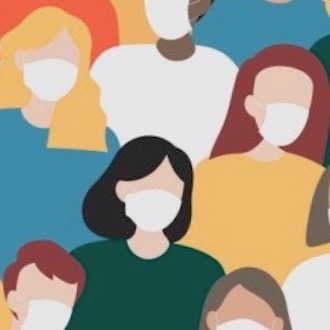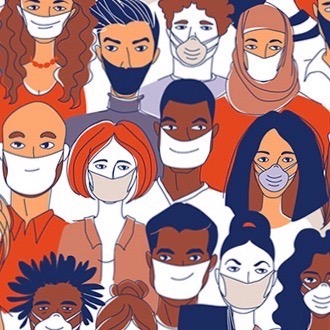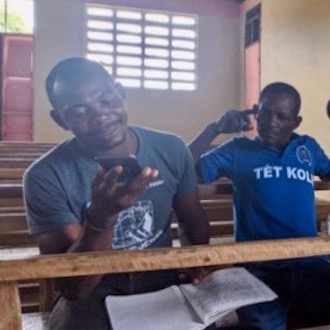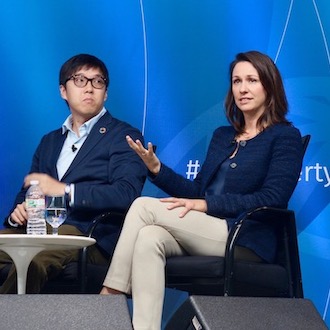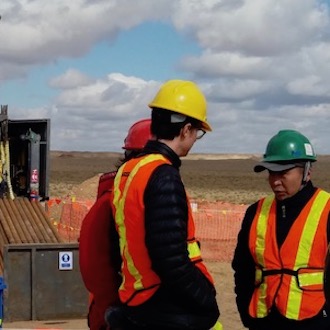COVID-19
Accountability Counsel’s COVID-19 Response and Leadership
As partners with communities seeking remedy for human rights and environmental harms caused by internationally financed projects, we are seeing firsthand both the impacts of the COVID-19 pandemic on vulnerable communities and the increased risks many now face due to past harm by international financial flows. Now, more than ever, we must continue advocating alongside communities whose lives and health are immediately at stake. Here is our response:
POLICY ACTION
Keeping fast-tracked aid accountable:
- IFIs have committed billions of fast-tracked financing in response to the COVID-19 crisis. The fast-tracked nature of the money, as well as limitations on travel and gatherings, means real risk that stakeholders will not be consulted on projects that directly affect them. Further, this financing is slated for clients, financial intermediaries, and borrowing states. It is not designed to reach those who are at the most risk – namely communities impacted by and workers at existing projects.
- We have seen the harm international finance can cause, particularly disaster response funds, long before this pandemic struck. Funding for the COVID-19 response should therefore be viewed as not only a necessary and welcomed response to a crisis, but also as a source of risk for unintended consequences that requires sufficient safeguards.
- Our Policy team is advocating for transparency and accountability of financial institutions’ crisis response plans to ensure this money hits its mark and serves our most vulnerable communities. IFIs should create emergency grant-making facilities that provide money directly to individuals affected by existing projects. Further, now is a critical time for IFIs to take additional steps to ensure that all project-affected people are aware of independent accountability mechanisms so that they can raise any potential issues with the fast-tracked financing as soon as they arise. And finally, all COVID-response financing needs to be publically accessible in multiple languages; if people do not know what financing is occurring, it cannot be monitored.
- Accountability Counsel is not alone in its efforts.
- In a joint letter to the International Finance Corporation, we asked it to increase the transparency of its financing, increase protections for workers, and create an emergency grant-making facility.
- We also supported International Corporate Accountability Roundtable’s request to governments, businesses, and investors to respond to the environmental and human rights risks posed by COVID-19 as well as the Coalition for Human Rights in Development’s eleven recommendations for how development financiers can ensure their COVID-19 responses respect human rights.
COMMUNITY FEEDBACK TOOLS
Communities need tools to give direct and valuable feedback to those directing COVID-19 funds:
- Our Research team has developed Zwazo, a messaging system we originally created and used for community consultation in our casework in Haiti. We have adapted and shared this messaging tool with civil society groups in the Bay Area to allow for remote consultation and to connect communities needing basic services, including grocery delivery, to social services and mutual aid networks.
- Beyond Haiti and the Bay Area, COVID-19 has accelerated our support to communities to use messaging tools we develop to help communicate their urgent needs, consult on solutions, and be heard. We are writing about how these tools are not a direct substitute for in person community consultations, but are useful if used carefully and in certain contexts.
- We’re doubling down on our work to share information to prevent harm from international financial flows. It’s urgent that investors have all the information needed to make good decisions. Our database, the Accountability Console, details every community complaint ever filed regarding harm from internationally financed projects. It can serve as a particularly powerful tool for investors to ensure their COVID-19 response funding does not repeat known problems.
ELEVATING VULNERABLE COMMUNITIES
Communities who are the most vulnerable need to be at the front of COVID-19 support:
- Our community case clients are among the most vulnerable populations, and are facing increased risk of exposure to COVID-19 precisely because of past harm by international financial flows. Our client community of tea workers on plantations co-owned by the IFC in Assam, India is illustrative of this – workers do not have access to basic sanitation, housing, or food security, and are acutely vulnerable to coronavirus. Our Communities team is advocating to ensure communities like these are among the beneficiaries of COVID-19 response funding.
MEDIA
Read more about Accountability Counsel’s work supporting vulnerable communities during the COVID-19 crisis:
Please donate here to join us as an ally in advancing accountability in this critical moment. We deeply appreciate your support that makes our work possible.



